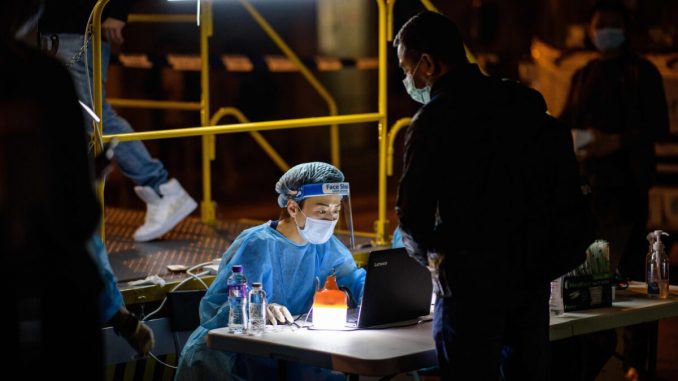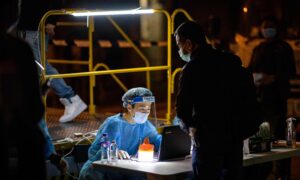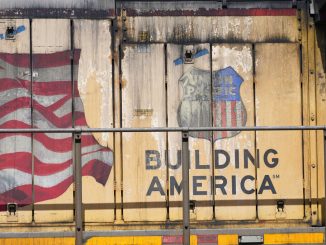

Hong Kong has announced that all foreign domestic helpers in the city will undergo compulsory COVID testing after a Filipino woman and a newborn infant in her care tested positive for two virus mutations.
The 39-year-old Philippino domestic helper had no travel history. She and the infant in her care were confirmed to be infected with a coronavirus variant carrying the N501Y and E484K mutations in April. Both mutations are found in numerous CCP (Chinese Communist Party) virus variants, and are estimated to make the variants more infectious and more deadly. On April 30, the Hong Kong government said that all of Hong Kong’s 370,000 foreign domestic helpers would undergo compulsory testing by May 9.
Free screening services were being provided on May 1 at various inspection stations in Hong Kong, including the Pedestrian Area of Chater Road, the entrance to Hing Fat Street at Victoria Park in Causeway Bay, the entrance to Tsuen Wan Park, and the entrance to Lai Chi Kok Park. A large number of foreign helpers queued up, and some had to wait for hours to complete the tests due to the big crowds.
Expert: Variants Already Spreading in the Community
On the same day, Yuen Kwok-yung, a government adviser and professor of microbiology at the University of Hong Kong, said that according to gene sequencing analysis by the University of Hong Kong, the strain of the virus detected in the 39-year-old Philippino domestic helper—the South African variant B.1.351—was the same as the one found in a 29-year-old Indian man who came from Dubai and first brought the strain to Hong Kong. According to Yuen, it’s believed that the strain has already been circulating in the community.
At present, the Hong Kong government requires compulsory testing of foreign domestic helpers throughout the city. But Yuen said testing is not a substitute for rapid, layer-by-layer tracking. Only through tracking can it be known how the chain of transmission started.
Yuen pointed out that the cases reveal loopholes in the government’s travel ban and quarantine measures. Sampling and testing may be problematic as there may be false negative cases, which may have allowed the introduction of South African variant into the community. He suggested that newly quarantined people, especially those quarantined in Ramada hotels, should have their cases reviewed.
Yuen also said that the outsourced testing contractors’ laboratories should be inspected by random sampling to reduce the incidence of false negatives or false positives.
Faulty Test Results
BGI Group, formerly known as the Beijing Genomics Institute is one of the test kit manufacturers for Hong Kong, and has made frequent mistakes recently with its COVID testing. In the last week of April, BGI reported nearly 30 false positives and that more than 100 people had mistakenly been sent to quarantine centers. In addition to the false positives, BGI is also suspected of having missed infected people due to sampling errors.
On April 24, the Centre for Health Protection (CHP) in Hong Kong cited the case of another Philippino domestic helper infected with a variant of the CCP virus. She was diagnosed at a community testing center eight days after completing quarantine. Antibodies were also detected in her body, indicating that she had been infected for some time. Yuen, the microbiology professor, said he suspects that the testing company had made errors when sampling and failed to detect the virus.
The company that did the testing was BGI.
At present, there are 21 community testing centers in Hong Kong, seven of which are operated by BGI. While the government has suspended BGI’s mobile sampling stations, Chief Executive Carrie Lam has refused to suspend other BGI testing services, citing the need to “balance testing capabilities.”






Be the first to comment